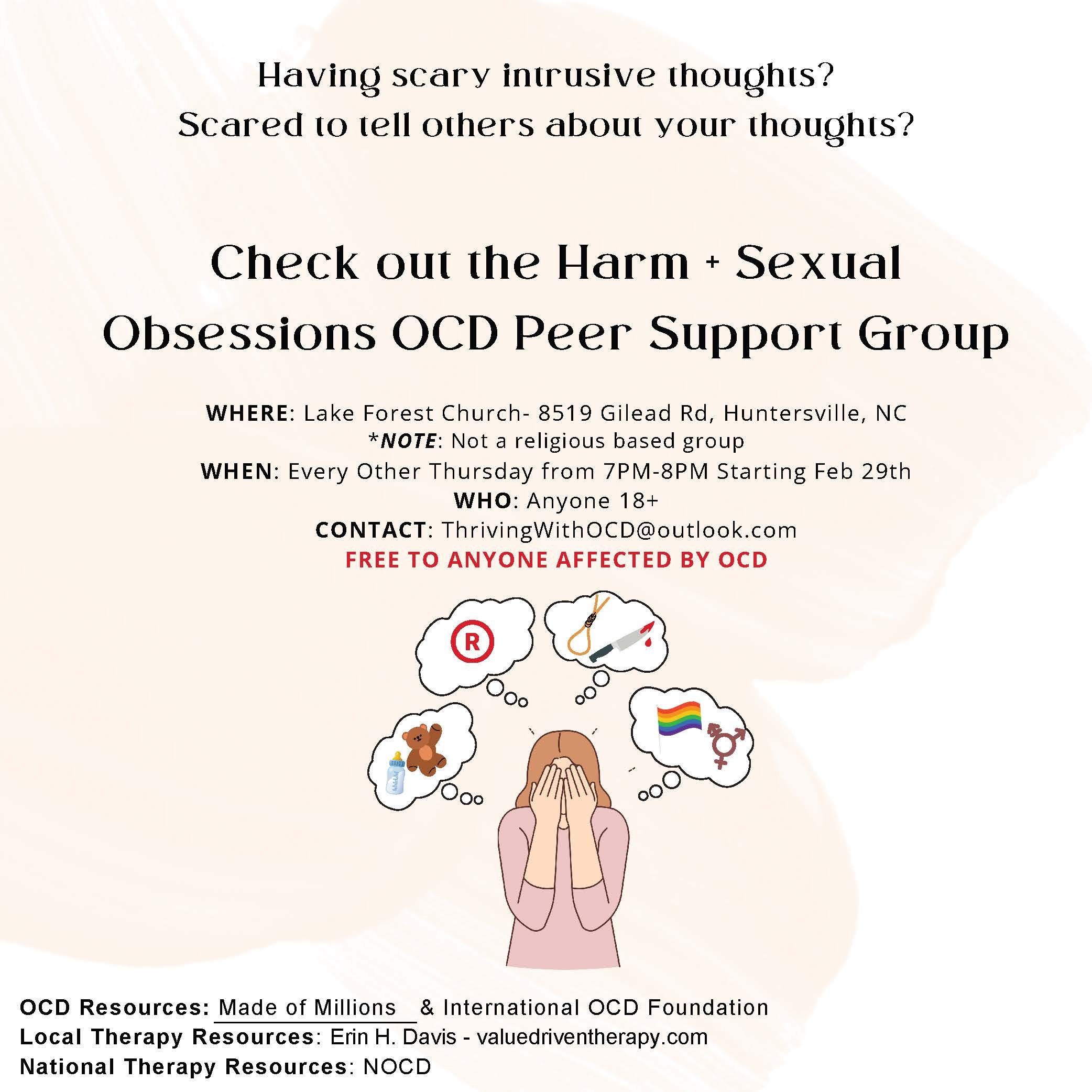Free OCD Support Group
For many people living with obsessive-compulsive disorder (OCD), finding meaningful connections and understanding can be challenging. How can one make sense of the intrusive thoughts, fears, and rituals that seem so foreign to those not affected by the condition? In this week’s podcast between Hannah, an OCD patient advocate, and Erin H. Davis, we learn about Hannah's journey with OCD, how she sought therapy, and most importantly, how she is now facilitating a support group to help others have a safe space to open up about their challenges.
The Beginnings: Recognizing OCD
Hannah remembers harboring fears and anxieties from a young age, but it was not until her adulthood that she found out these feelings actually pointed toward OCD. But understanding what she was dealing with did not dissolve her thoughts and fears. If anything, it served to heighten her awareness about them and further exacerbate her anxiety about possibly causing harm to herself or her loved ones.
The Power of Therapy
Navigating therapy is a critical part of dealing with OCD. After realizing that her initial therapy sessions were not entirely helpful, Hannah sought a specialist in ERP (Exposure Response Prevention), an evidence-based therapy for OCD. Therapist interventions in OCD must be direct and constant, to prevent patients from resorting to harmful rituals or coping mechanisms.
Hannah’s therapists helped her challenge and talk back to her fears. Despite the being initially terrifying, each successful encounter with her fears without resorting to her compulsions emboldened her to take on bigger challenges. She highlights the importance of owing up to your thoughts and fears, for it's in recognizing them that you can begin traversing the path towards recovery.
Creating Safe Spaces: The Impact of Support Groups
Beyond professional help, seeking and providing peer support can prove life-changing. With her experience, Hannah found herself in a unique position to offer that kind of support. She started a support group to offer those struggling with similar experiences a platform to voice their fears and anxieties.
Being open about her experiences with OCD both in professional spaces and in her support group has helped Hannah normalize the condition, not just for herself but for others dealing with the same. Hannah's story is a testament to the transformative power of therapy, self-acceptance, and the nourishment that community support can provide.
Closing Thoughts
In the face of OCD, having someone guide you, challenge you, and tell you that no, you’re not ‘crazy’, can change the course of your journey. Seeking professional help, including the right therapy, might be an uphill task, but the rewards are worth it. And while therapy does its work, remember the power of community support and the relief that sharing your experiences can bring. Life with OCD can be daunting, but there will always be people ready to walk the journey with you.



